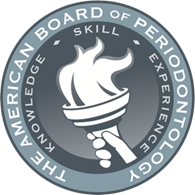 Many dentists recommend implant dentistry to patients seeking teeth replacement because it is safe and has proven results. Implant dentistry also provides a way to fulfill a range of teeth replacement needs, and you can restore your smile after losing a single tooth, a section, or an entire row of teeth with dental implant restorations.
Many dentists recommend implant dentistry to patients seeking teeth replacement because it is safe and has proven results. Implant dentistry also provides a way to fulfill a range of teeth replacement needs, and you can restore your smile after losing a single tooth, a section, or an entire row of teeth with dental implant restorations.
Reviewing the safety and efficacy of implant dentistry
The large majority of implant dentistry patients report positive results. While there are more risks involved with implant dentistry, the risks are still relatively minimal, and side effects from any complications are usually minor and easy to address. The following is a more detailed explanation of the safety and efficacy of implant dentistry.
Implant dentistry explained
Implant dentistry is a popular form of teeth replacement. The dental implant, which is a small metal post that is surgically fixed into the jaw to serve as the root of a replacement tooth is what separates implant dentistry from more traditional methods such as a removable denture or a fixed bridge. Implant dentistry can be used to replace one tooth, a section, or an entire row.
Is implant dentistry a safe procedure?
The implant dentistry procedure is more invasive than what is required with a removable denture or a fixed bridge. However, serious side effects or complications are rare, and most patients can avoid any setbacks with the recovery process.
How does the implant dentistry procedure work?
It is helpful to understand exactly what takes place during the implant dentistry procedure. Specifically, it is beneficial to know more about the procedure to place the dental implants, which is the most invasive step in the process. This minor surgical procedure involves making an incision into the gums to access the jaw, drilling a small hole to fit the implant(s), and properly positioning them into the jaw. An anesthetic is used to help ensure there is no discomfort during the procedure.
Are there any risks for implant dentistry?
All surgical procedures, regardless of whether or not they are minor, have risks. The most notable risks of the implant dentistry placement procedure are:
- A failed dental implant
- An oral infection
- Nerve damage
- Damage to natural teeth
- Damage to the gums or jawbone
While there are risks, complications are incredibly rare during the placement procedure, and they can generally be addressed promptly if they do arise.
What is the success rate for implant dentistry?
Studies have shown that the success rate for dental implants is above 90 percent, and some studies have suggested that the success rate is closer to 95 percent. A dentist can explain the safety and success rate for implant dentistry in greater detail during a consultation.
Restore your smile and oral health with implant dentistry
You can restore your smile after losing one or more teeth with implant dentistry. To speak with our implant dentist about your teeth restoration options, contact us by phone or message today to schedule a visit at a time that is convenient for you.
Request an appointment or call Dentplants Dental Implant Center at 703-291-9006 for an appointment in our Tysons office.
Related Posts
An implant dentist is a dental professional that offers dental implant restorations. Implant dentists often recommend dental implant restorations because of the benefits they offer that alternative solutions such as fixed bridges and removable dentures cannot provide.To help you decide if treatment may be right for you, this review discusses why implant restorations are so…
Implant dentistry involves teeth replacement with dental implants. One popular option within implant dentistry is an implant-supported bridge, which is ideal for replacing a section of missing teeth. The following review discusses everything you should know about an implant-supported bridge.Many are choosing implant dentistry for teeth replacement over a traditional fixed bridge and removable partial…
Dental implants are often referred to by implant dentists as artificial tooth roots. This is because they work in a similar fashion as natural tooth roots. Dental implants hold replacement teeth (i.e. dental crowns) in a stable and strong position.By learning more about dental implants, you can determine if implant dentistry is right for you…








